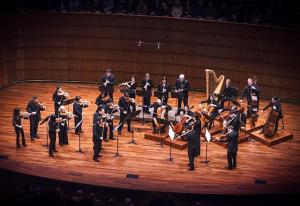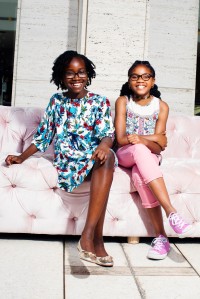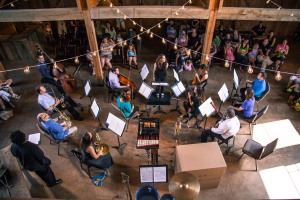
Why does an orchestra matter to the community? How should orchestras evolve as we move through the 21st century? What unique role can an orchestra play in our lives today? These are questions that I continue to visit in my work as an artist and conductor and I love the exploration, engagement and listening that comes with an attempt to respond to these questions. For me, I love orchestral music. Nothing in my life compares to the power, nuance, color, emotion, variety and journey that I experience listening to and engaging in orchestral music. I am an optimist that believes that an engaging, relevant, live performance of great music in a place where the audience is welcomed and feels a sense of belonging can be all that is needed to start a love affair with orchestral music. Getting to the nuts and bolts of how this is achieved through programming, education, and organizational structure and leadership is a more nuanced discussion. For me, the success of the 21st century orchestra hinges upon three things: collaboration, relevance and accessibility.

Collaboration
Collaboration is “the act of working with someone to produce or create something.” Who are we working with and what are we creating? On an intrinsic, simple level in an orchestra, musicians on stage are working together, with their listeners and with the composer (dead or alive) to create a performance. But, collaboration for the 21st century orchestra should exist, both internally and externally, well beyond the performance on stage. The old models of the dictator music director, repertoire that shares a white, euro-centric male perspective, and top-down leadership are no longer viable in the 21st century as we look to engage a diverse community and create work that matters. By giving players a voice in artistic matters, working with diverse community partners, and creating an orchestral environment where all “out-of-the-box” ideas are listened to, we can create a vibrant, new model for orchestras in our country where diverse voices and perspectives are valued. Community partners can also allow for deeper points of entry into the repertoire. As an example of “internal” collaboration, the St. Paul Chamber Orchestra has shared the artistic leadership between SPCO players and a list of artistic partners. This allows for players to have a direct say in what they are playing and who they are working with. For “external” collaboration, with Intersection each program features community partners either participating in the artistic product as actors, artists or dancers, or even as shared programming where cost, program curation, workshops and other resources and activities are completely shared to reach greater audiences.

Relevance
Relevance is about serving a community need and providing meaning. This can come in many forms. It can be the one listener that is provided with an inspiring escape from their busy life, it can be the youth that looks to an orchestra musician or staff person as a positive adult mentor, it can be the young people who never knew they could have a life in music until they saw the female conductor, or the black composer on stage, it can be the person who now thinks differently about a social issue, seeing someone as human, because of the musical story they just witnessed, and it can be the person who thought their life didn’t matter, that they were forgotten, until an orchestra came to play for them just with the intention of sharing a musical moment. Music is powerful. Organizations and orchestras must reflect the community in their organization and create programs that truly connect with their communities. The Silk Road Ensemble has an incredible mission statement: Silkroad creates music that engages difference, sparking radical cultural collaboration and passion-driven learning to build a more hopeful world. That’s a long way from the “artistic excellence” focused mission statements of the 20th century orchestra. This is not about abandoning artistic excellence, but it is about framing the work in a way that is meaningful. Relevance can come forward in a multitude of ways. The New York Philharmonic Very Young Composers program recently showcased two 11-year old girls in a parks concert in front of thousands of people – helping us to see that “classical” composers are not just dead old white guys. The San Francisco Symphony’s Soundbox Series brings classical music into an alternative space with multiple intermissions and drinks – creating a new environment for curiosity, connection and exploration with repertoire both old and new.
Accessibility
Something accessible is “easy to be reached or entered.” We must continue to explore all of the traditional barriers to accessibility, such as ticket price and location, but we must also look for new ways to create connection and expand what we think of as our community. The Detroit Symphony has both their Live from Orchestra Hall Series (free live webcasts of DSO performances) and their Live Classroom Edition (webcasts of educational programs) that reach thousands of people around the world. Many orchestras have explored a certain number of pay-what-you-can tickets. With Intersection, all of our rehearsals are open to the community, as we believe creating more opportunities to hear this music is good for everyone.
Orchestras provide a unique opportunity to connect with our past, present and future through the powerful language of music. We will continue in the 21st century supporting the creation of new works, working with excellent artists and bringing forward the great masterpieces of the past. As we move forward, with evolving tools, technology and social engagement we must continue to test the sustainability and viability of old models and create work that is collaborative, relevant and accessible.


